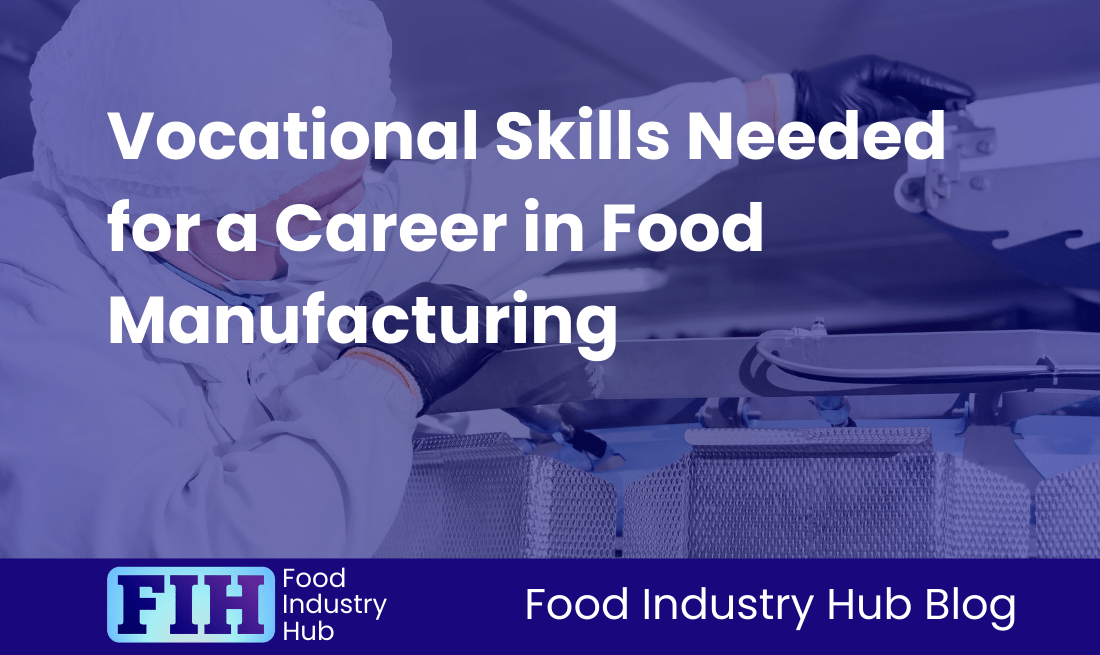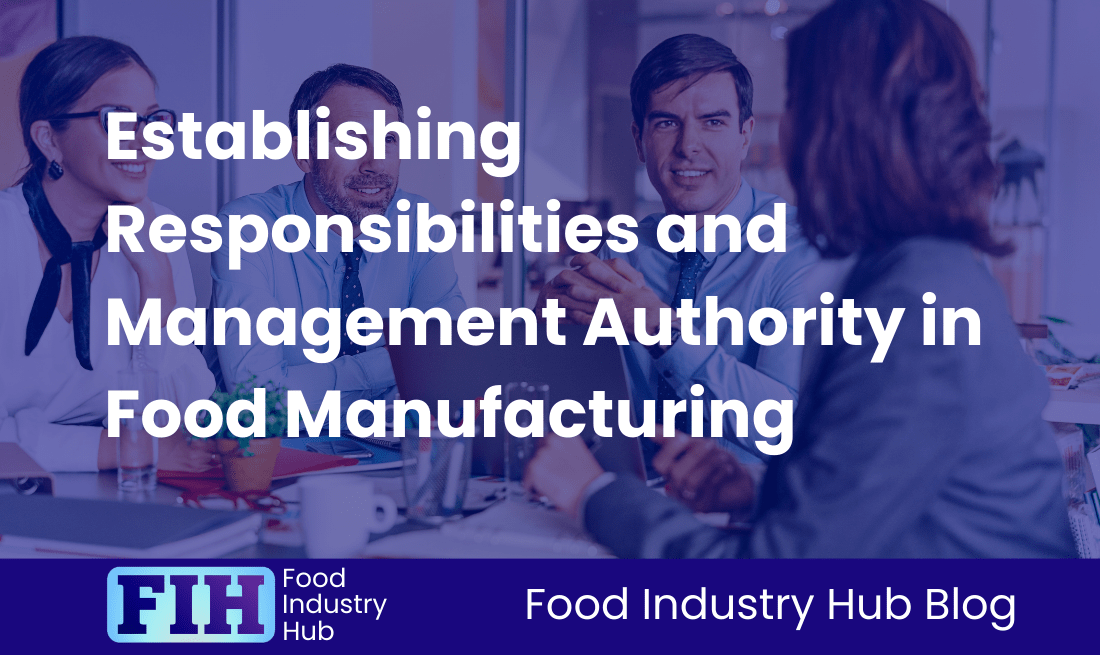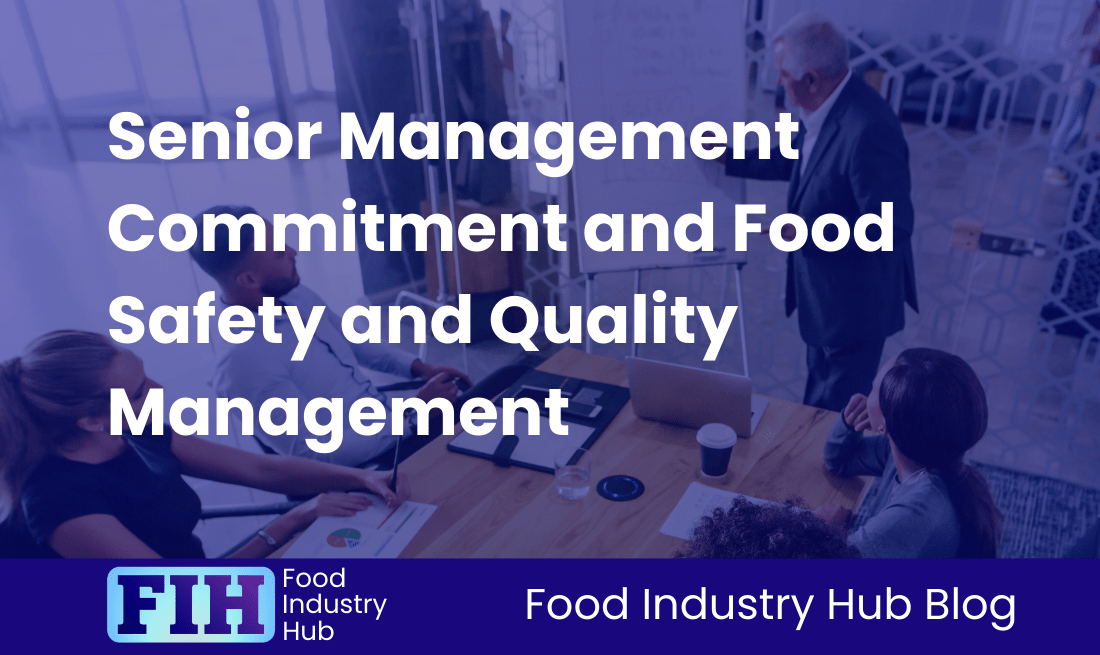Know: Job Descriptions
Contents
Introduction
Key Takeaways
Constructing Effective Job Descriptions
Understanding Legal and Regulatory Frameworks
Food Manufacturing Job Roles: Specific Considerations
Impacts on the Organisation and Strategic Alignment
International Perspectives and Regional Considerations
Templates and Tools for Job Descriptions
Conclusion
Introduction
In food manufacturing operations, the precise definition of roles is fundamental, with job descriptions contributing directly to operational efficiency. Such documents demarcate responsibilities, highlight safety standards, and suitably match workforce skills with business needs.
Job descriptions are formal documents that delineate tasks specific to each role, mandated skills, and adherence to compliance demands. Acting as tactical tools, these seek to attract apt candidates by openly showcasing the technical and regulatory requirements. They also harmonise expectations for roles such as quality assurance specialists or machine operators, reinforcing food safety methods and documenting regulatory compliance.
Well-crafted job descriptions augment operational effectiveness by decreasing inaccuracies via clear task assignments, speeding up the introduction process with structured training markers, and increase scalability by setting out defined career advancement paths.
Job descriptions significantly uphold organisational structures by elucidating reporting lines and spreading accountability across numerous roles. This promotes effective teamwork between production, packaging, and distribution units, ensuring smooth operations.
In this article, we will navigate through several themes, including the relevance of compliance-driven designs emphasising safety methods, the pertinence of skill-specific mandates, adaptability structures responding to evolving technologies, and performance indicators connecting responsibilities with measurable results. It’s essential to note that job descriptions are dynamic documents that adapt to regulatory changes and technological progress, significantly affecting productivity and food safety results.
Key Takeaways
Definitive and concise job descriptions are paramount in devising effective recruitment and retention techniques for food manufacturing businesses. Accurate descriptions draw in high-quality applicants by distinctly outlining the necessary skills and expected qualifications. Aligning job descriptions with the cultural values of the firm provides a clear understanding of the organisation’s ethos, enabling potential employees to ascertain if they could be a good fit. This level of transparency can help lower turnover rates as employees who understand their roles are more likely to remain invested in their duties, leading to job satisfaction.
Varied Role Considerations
Job descriptions must be constructed to reflect the unique demands of different roles within the food business. Each role – from production and quality assurance to leadership positions – has specific competencies and responsibilities that need clear articulation. This level of detail ensures the right talent is drawn to the unique requirements of each role. Consequently, organisations can build a skilled workforce adept at coping with industry challenges.
Regional Factors
Regional dynamics play an important part in formulating job descriptions. Legal and commercial considerations can differ significantly from region to region, impacting how descriptions are built. For example, compliance requirements may fluctuate between the EU and the U.S., while cultural trends can influence the style of language used in job postings. Appreciating these differences is essential for creating relevant job descriptions that are legally compliant and resonate with target applicants. By paying attention to these aspects, food manufacturing firms can improve their hiring processes and align their workforce more closely with operational aims.
Food Industry Hub Management Systems can significantly boost the effectiveness of your food safety and quality management system, leading to improved confidence and elevated quality assurance throughout your operations.
Constructing Effective Job Descriptions
Job Role Description
An effective job role description demands clear and precise language that accurately depicts the role’s tasks and responsibilities. In the food manufacturing industry, job descriptions must map out the specific role requirements, such as compliance with health standards and effective processing procedures. Using present tense action verbs and straightforward language provides clarity for both potential candidates and current employees. This clarity aids in the recruitment process and helps establish performance expectations and appraisal metrics.
Key Responsibilities
A detailed section outlining responsibilities plays a vital part in recruitment, performance management, employee development, and compliance. Identifying essential functions assists recruiters and employees alike in understanding core duties, better aligning the organisational needs with candidate skills. In the food manufacturing industry, these responsibilities could include overseeing production lines, ensuring product quality, and complying with safety regulations. Such transparency aids in assessing employee performance and aligning compensation systems with industry standards and regulations.
Job Title and Purpose Details
Clarifying Job Titles
Accurate job titles significantly affect recruitment success. They attract the correct candidates by immediately clarifying the role’s purpose and responsibilities. Avoiding vague or misleading titles is key as they might confuse candidates or misrepresent the expected duties. Industry-specific titles such as “Quality Assurance Specialist” or “Production Planning Coordinator” assist with job board searches and improve the relevance of applicants. This clarity enhances recruitment efficiency and promotes finding candidates who suit the role and the organisational culture.
Purpose Statements
Well-constructed purpose statements concisely articulate the role’s significance within the company and its contribution to overarching objectives. A purpose statement within food manufacturing might emphasise the role’s involvement in maintaining top product quality and safety standards. Thoughtful purpose statements provide a clear view of how an employee’s role contributes to the overall success of the organisation, creating a sense of belonging for potential candidates.
Detailing Duties and Responsibilities
Balance of Specificity and Flexibility
An effective job description finds equilibrium between specificity and flexibility. It’s important to clearly outline core duties and performance standards, but also allow room for adaptability. In the fast-paced environment of food manufacturing, operations may change due to advancements in technology or market trends. This flexibility keeps job descriptions current and enables employees to adapt in a way that promotes workplace engagement and satisfaction.
Task Lists
Including defined task lists in job descriptions is key for establishing performance standards. They detail specific responsibilities using action-oriented language for precise articulation of expectations. For example, tasks for a quality control technician might comprise “conducting routine product inspections,” “analysing quality data,” and “collaborating with production teams.” These exact details are especially critical in the highly regulated food manufacturing industry in performance assessments and clarifying evaluation criteria[Source: Lever].
Outlining Qualifications and Skills
Essential and Beneficial Skills
A significant requirement is to differentiate between essential and beneficial skills in job descriptions. Essential skills are those necessary for performing the core job functions, such as understanding food safety regulations, while beneficial skills can enhance job suitability without being strictly required. This distinction focuses the recruitment process, attracting various applicants while ensuring candidates possess the required qualifications for the role within food manufacturing.
Legal Attention
Job descriptions need to comply with legal standards to reduce the risk of discrimination during recruitment. This requires using inclusive language, concentrating on job-related criteria, and updating job descriptions frequently to stay aligned with employment laws, including the Americans with Disabilities Act (ADA). Clearly outlining essential job functions supports decisions on reasonable accommodations, ensuring recruitment practices remain inclusive and diverse. This legal consideration is particularly significant in the food manufacturing industry, where varying skill levels and backgrounds can significantly enhance operational ability.
Working Conditions
Environment Details
In the food manufacturing sector, job descriptions should include comprehensive health and safety information. With the industry-specific health risks such as chemical exposure or required use of personal protective equipment (PPE), role requirements need to be outlined clearly. Transparency in working conditions helps candidates to evaluate their suitability for the role and evidences the company’s commitment to safety and regulatory compliance[Source: Wright State University].
Legal Requirements
Job descriptions should comply with transparency laws regarding working conditions, including the physical demands of the role, shift patterns, and specific health and safety considerations. Meeting these requirements not only ensures organisations align with labour regulations but also promotes a culture of openness and preparedness. Adherence to legal requirements is particularly fundamental in food manufacturing, where role demands can significantly affect both job performance and employee wellbeing[Source: Lever].
Understanding Legal and Regulatory Frameworks
In the food manufacturing industry, the comprehension and observance of diverse legal and regulatory frameworks play an essential role in drafting comprehensive job descriptions. Although not always legally enforced, job descriptions act as key pieces of documentation that showcase an organisation’s adherence to labour laws, safety regulations, and industry standards. These valuable documents map out not only the roles and responsibilities of staff but also serve to curtail potential risks linked to discrimination allegations, wage disputes, and legal liabilities. Precise job descriptions enhance transparency and operational efficiency, supporting firms to uphold compliance and cultivate a sense of responsibility across the workforce [Source: JDXpert].
UK Compliance
The Employment Rights Act 1996
The Employment Rights act of 1996 lays down a working framework wherein employment contracts and rights in the UK are clarified. Although the act doesn’t explicitly necessitate job descriptions, it underscores the need for employers to spell out clear, understandable terms of employment. These should include specific roles and responsibilities that job descriptions are designed to communicate. Clear job descriptions can help avoid disputes over unjust dismissal and other employment-related discrepancies. In food manufacturing scenarios, well-defined roles greatly augment workplace safety and operational productivity as employees are aware of their relevant duties [Source: JDXpert].
Complaince
The Food Standards Agency (FSA) upholds rigorous regulations associated with food safety and hygiene. Additionally, the Brand Reputation through Complaince Global Standard for Food Safety (BRCGS) offers further compliance requirements for food manufacturers. Within this scenario, job descriptions need to encompass detailed duties related to food safety, such as supervising hygiene standards, directing safety audits, and maintaining compliance with Hazard Analysis and Critical Control Points (HACCP). Embedding these duties into job descriptions ensures that roles meet regulatory expectations and assists organisations in keeping the required certifications for operational progression
Meeting EU Directives
Transparent and Predictable Working Conditions Directive
The Transparent and Predictable Working Conditions Directive seeks to equip EU employees with clearer employment terms. Under this directive, job descriptions are expected to detail primary responsibilities, working hours, remuneration structure, and additional working conditions, thereby advancing transparency and fairness. For food manufacturers, it calls for job descriptions to clearly set out the specifics of working hours and conditions to reduce misunderstandings and maintain compliance with employment norms [Source: EC].
Germany’s Works Constitution Act
Germany’s Works Constitution Act incorporates key regulations concerning employee representation and participation within firms. Although the Act doesn’t specifically govern job description requisites, it suggests that job roles should be developed with contributions from employee representatives, or works councils. In the context of food manufacturing, this collective approach guarantees that job descriptions thoroughly reflect agreed upon terms and conditions, thereby creating a positive working atmosphere and ensuring compliance with collective agreements [Source: Hogan Lovells].
Upholding US Regulations
At-will Employment
At-will employment provides U.S. employers with the flexibility to dismiss employees without a specified reason, necessitating clarity in job descriptions to prevent implied contracts that could involve employers in wrongful termination lawsuits. Therefore, it’s essential for job descriptions to explicitly outline performance expectations and primary functions, ensuring shared understanding between employers and workers. Within the field of food manufacturing, this clarity contributes to maintaining operational efficiency while minimising potential legal risks.
Fair Labor Standards Act (FLSA)
The Fair Labor Standards Act (FLSA) initiates obligatory guidelines regarding minimum wage, overtime pay, and categorisation of employees. Job descriptions need to accurately portray the fundamental duties of a role to determine whether it is exempt or non-exempt from overtime provisions. Especially in the food manufacturing industry, where employees may undertake diverse roles and schedules, well-articulated job descriptions are essential for compliance, safeguarding against costly disagreements concerning wage and hour claims.
Comprehending and abiding by these legal and regulatory frameworks is integral to generating job descriptions that are not only compliant, but which also encourage organisational integrity and operational excellence in the food manufacturing industry.
Sign-up for the Food Industry Hub Mail Service
We regularly produce new content for food industry professionals, and the Food Industry Hub Mail Service is the best way to stay up to date with the latest additions.
Signup today to be added to the Food Industry Hub mailing list.
Food Manufacturing Job Roles: Specific Considerations
The food manufacturing industry comprises various essential positions, such as food processing workers, quality control inspectors, machine operators, and managerial roles. Each job has distinct responsibilities that ensure the safe and effective production of food items. As such, it is important for job descriptions to detail the necessary competencies and clarify how each position contributes to quality and safety in food production. As noted by the Bureau of Labor Statistics, positions such as food and tobacco processing workers play a crucial role in maintaining production flow and compliance with health regulations [Source: Bureau of Labor Statistics].
Considerations for Production Line Roles
Machine Certifications
For production line roles, job descriptions should specifically mention the relevant machine competencies associated with given food processing equipment. Workers often operate complex machinery, including ovens, boilers, and mixers. By stating requirements, employers can assure that employees have the needed training and competency to operate these machines safely and effectively. This emphasis on proactive approach helps in mitigating operational risks and maintaining quality control measures throughout the production process [Source: Mighty Recruiter].
Real-world Problem-solving
Emphasising the need for practical problem-solving skills in job descriptions for production line roles is equally important. Operators often face equipment malfunctions or quality assurance challenges that require quick, informed decision-making to maintain production consistency. This focus prepares candidates for the operational challenges in food production, ultimately reducing downtime and enhancing productivity [Source: Indeed].
Special Conditions for Quality Assurance Positions
ISO 22000 Responsibilities
Quality assurance job descriptions should clearly outline responsibilities related to the ISO 22000 standard: a prominent standard for food safety management systems. QA professionals regularly participate in internal and external audits to ensure compliance with this internationally recognised standard. By outlining these responsibilities, job descriptions can highlight the important role that QA personnel play in maintaining adherence to certifications and food safety protocols, ultimately protecting consumer health.
Understanding Regulations
The ability to understand various food safety and quality regulations is a fundamental requirement for QA roles. Job descriptions should stress the need for familiarity with standards established by regulatory bodies such as the FSA, FDA, and USDA. This understanding enables QA personnel to conduct inspections and audits, apply corrective actions, and adhere to good manufacturing practices (GMP), which are required for maintaining product quality and safety during all stages of production.
Leadership Role Considerations
Strategic Oversight
In leadership roles, job descriptions should highlight the importance of strategic planning and effective crisis management. Leaders are tasked with overseeing production activities, managing safety compliance, and coordinating with various departments to achieve overall operational objectives. Clearly articulating these aspects can attract qualified candidates while developing a framework of leadership expectations in line with the organisation’s strategic goals [Source: IMA].
Mentioning Methodologies
Inclusion of methodologies such as Lean, Six Sigma, and Kaizen in leadership job descriptions is also prudent. These approaches promote continuous improvement and operational excellence within the manufacturing environment. Candidates familiar with these methodologies can significantly boost efficiency, reduce waste, and improve product quality, contributing to the competitiveness in the food manufacturing industry.
Together, these focused considerations when drafting job descriptions can align the hiring process with the unique needs of food manufacturing role, supporting compliance, safety, and operational success within the industry.
Impacts on the Organisation and Strategic Alignment
Strategic alignment within an organisation implies orchestrating all functions, using job descriptions, to propel the overall business objectives. In food manufacturing, an emphasis on strategic alignment can significantly bolster operational efficiency, and sustain safety and quality standards – key components for triumph in a tightly regulated industry. It is advantageous to depict clearly the contributions of each role towards achieving strategic objectives. This clarity empowers employees to take a more responsible sense of their work, which can lead to heightened efficiency and job satisfaction. Organisations that uphold the practice of strategic alignment often record better performance, underscoring its importance in the food manufacturing sector [Source: The Strategy Institute].
Contribution to Talent Acquisition
Reducing Misalignment
Employing well-thought-out job descriptions aids in attracting candidates possessing requisite skills and values that align with the organisation’s needs. This practice holds significant importance in food manufacturing where adherence to safety regulations and quality assurance are of vital necessity. Clear, comprehensive job descriptions can considerably reduce hiring mismatches by presenting specific responsibilities and expectations linked to a given role. This ensures candidates understand how their role impacts key company metrics like production efficiency and product safety compliance.
Collaboration
The process of creating job descriptions benefits from various perspectives, such as those from HR professionals, department heads, and frontline employees. Such collaboration guarantees that job descriptions truthfully represent the reality of roles within the food manufacturing environment, giving due attention to operational demands and compliance considerations. This versatile approach ensures comprehensive job descriptions that echo the organisation’s culture and strategic objectives [Source: Indeed].
Role in Performance Management
Success Criteria
Job descriptions serve as a backbone for setting measurable standards for performance evaluation. Outlining clear responsibilities and expectations within job descriptions allows for objective assessments based on specific criteria. Food manufacturing performance metrics often comprise production results, compliance with quality control standards, and adherence to safety regulations. Clarity in these criteria helps to build a performance-oriented culture in alignment with business objectives.
Structured Frameworks
Distinct correlation exists between job descriptions and performance management models within food manufacturing organisations. Job descriptions provide managers with a structured reference to gauge employee performance against organisational targets, such as meeting production deadlines or compliance with safety protocols. This systematic approach helps organisations identify areas of improvement and any further training requirements, contributing towards continuous development and adherence to best industry practices.
Cultural Integration
Organisational Values
Incorporating organisational values into job descriptions helps ingrain a desirable culture within the organisation. For the food manufacturing industry, values like quality, safety, and teamwork echoed in job descriptions relay essential behavioural expectations to prospective hires. Such practices not only assists in creating a strong, value-driven work culture, but also ties these behaviours to the organisation’s overall mission and objectives [Source: LSA Global]. In this way, well-written job descriptions can contribute to the development of the food safety and quality culture.
Employee Representation
Building job roles that mirror the diversity of the workforce enhances the inclusiveness and fairness within the workplace. An inclusive approach to job descriptions extends the selection process to a more varied pool of candidates, and encourages an equitable work environment. For example, food manufacturing companies can utilise diverse viewpoints to address operational hurdles or to innovate product lines. Inclusive job descriptions resonate with a diverse workforce, leading to increased engagement and adaptability in a competitive market.
Attention to strategic alignment, talent acquisition, performance management, and cultural integration enables food manufacturing organisations to write job descriptions that enhance operational efficiency and workplace harmony, driving the company towards success in a stiffly competitive environment.
International Perspectives and Regional Considerations
Variation: Introduction to Differences in Job Descriptions Worldwide
In the food manufacturing industry, job descriptions can greatly vary across regions due to factors such as cultural environments, fluctuations in market demands, and distinct regulatory frameworks. To respond constructively to these differences, companies are prompted to consider local contexts while crafting job descriptions. For example, quality control inspectors operating in the European Union need to abide by the compliance standards set by the European Food Safety Authority (EFSA). In contrast, counterparts in the United States focus more on guidelines established by the FDA. Understanding these regional variances plays an integral role in attracting the right candidates who are adept at navigating local regulatory landscapes and aligning with consumer expectations.
Sensitivity to cultural implications is important as well. Job titles and associated responsibilities may need tailoring to reflect local professional standards and terminology. In addition, regional practices in areas such as employee engagement and worker management can shape how job roles are perceived and defined. Sensitivity to culture not only ensures compliance but can also promote employee satisfaction and morale when job roles closely resonate with local norms.
Considerations for Contract Creation
Understanding Regional Laws
Thorough knowledge of the legal landscape is vital when formulating job descriptions in the food manufacturing sector. The integration of diverse labour laws, environmental regulations, and health regulations into job descriptions can ensure compliance in different countries. For instance, in the UK Employment Rights Act greatly influences how contracts are structured to safeguard employee rights. Similarly, in the U.S., Occupational Safety and Health Administration (OSHA) regulations play a key role in setting safety standards directly impacting job roles and descriptions.
Compliance with international laws, such as the General Data Protection Regulation (GDPR) in Europe, has an impact on the management of personal data in recruitment processes, thereby affecting job description language and duties. Similarly, in regions like India and Brazil, local standards established by regulatory agencies such as FSSAI and ANVISA necessitate the mention of certain certifications explicitly in job descriptions. This ensures that candidates possess the required qualifications for successful role fulfilment.
Adaptability
Job descriptions that are adaptable make a significant difference for multinational food manufacturing companies that operate in diverse regions. These descriptions should not only meet local legal standards but also account for technological, market, and cultural variances in different geographical areas. For instance, a food safety manager’s role in North America may involve overseeing the implementation of automated food safety technologies. On the other hand, the same role in developing regions might lean more towards traditional safety practices and manual inspections due to variations in technological progression.
Adaptable job descriptions allow companies to tweak roles without needing to completely re-write them for each market they enter. Striking the right balance between regional requirements and global operational standards can greatly enhance recruitment efforts and employee retention by aligning job roles with local expectations and industry practices.
Respecting Food Safety Protocols
Compliance with Food Safety Standards
Jobs within the food manufacturing industry need to place significant emphasis on compliance with rigorous food safety protocols. These protocols need to account for both global standards and regional regulatory requirements. Complying with frameworks such as Hazard Analysis Critical Control Points (HACCP) and Good Manufacturing Practices (GMP) is fundamental in preventing food contamination and ensuring product safety throughout the supply chain. As an example, a maintenance technician’s job description should include responsibilities related to safety audits and maintenance of hygienic practices, tailored to the local regulatory environment.
Poor articulation of these safety responsibilities can lead to inefficiencies in operations and increase the risk of legal consequences due to non-compliance with health regulations. Therefore, it is essential that all job descriptions include explicit references to responsibilities pertaining to compliance in a way that any potential candidate can easily understand.
Training Requirements
Enlisting detailed training requirements as part of job descriptions is essential for maintaining safe operations within food manufacturing. It’s necessary to mention specific certifications and training programmes required for each role to reflect both local and international standards. For instance, details about certifications such as HACCP, food safety management certification, and specialised safety training on machinery operation should be clearly articulated in job descriptions. This ensures that employees are adequately prepared to operate within safety protocols and legal requirements.
By incorporating the necessary training details in job descriptions, companies not only adhere to safety standards but also display their commitment towards employee development and workplace safety. This strategy aids in minimising risks related to workplace accidents thereby maintaining high standards of food quality and safety.
The creation of effective job descriptions in the food manufacturing industry involves a combination of understanding and adhering to regional legalities, maintaining adaptability, and ensuring strict observance of safety protocols. This approach aids in navigating the complexities of global operations and ensuring comprehensive organisational compliance and safety.
Templates and Tools for Job Descriptions
In the food industry, the ability to fine-tune job descriptions to match specific roles and requirements is made seamless by the use of customisable job description templates. These instruments uphold clarity and uniformity across varied positions, thereby paving the way for hiring qualified candidates who grasp the implications and expectations of their roles.
The merits of customisable templates are diverse. Primarily, they enable heightened precision as the templates can be effortlessly tweaked to coincide with job requirements, thereby affirming that principal duties and skill sets are accurately relayed to applicants. In an industry like food manufacturing, where roles can range from production line workers to quality assurance officers, precision is key.
The use of well-structured templates can lead to significant reductions in time and resources expended by HR teams, which is of great importance in an industry where recruitment needs can fluctuate promptly.
Customisable templates ensure alignment of job descriptions with the enterprise’s culture and brand, thereby attracting candidates who resonate with such an environment, which may eventually contribute to improved employee retention rates.
A structured paradigm for a Food Production Worker template might include:
- Job Title: Food Production Worker
- Job Summary: A concise ascent of the role and its relevance in the food manufacturing business.
- Responsibilities:
- Preparation and packaging of food products according to company benchmarks.
- Operating machinery and equipment, such as mixers and ovens.
- Monitoring production lines and making adjustments as required.
- Qualifications:
- Possession of a high school diploma or its equivalent.
- Prior experience in food production is advantageous.
- Aptitude to adhere to safety and quality procedures [Source: HR Blade].
Role-Specific Tools for Creating Accurate Job Descriptions
Certain tools, spanning equipment and software, are particularly beneficial in devising precise and comprehensive job descriptions. These resources assist in aligning job responsibilities with the practical demands of each role within the food manufacturing industry.
For roles that involve the operation of equipment, tools such as operational guides prove to be indispensable. These guides detail particular accountability around machine operation, maintenance, and troubleshooting – ensuring job descriptions communicate the exact skills needed for roles involving intricate machinery. Moreover, software documentation is useful in detailing digital tools utilised in production such as inventory management systems or quality control software – skills essential for roles requiring technical proficiency. The inclusion of training modules can further aid in formulating job descriptions that underscore the necessary learning curve associated with new hires.
Tools that commonly prove noteworthy in job description management comprise:
- HR Management Systems: PDigital platforms expedite the process of creating and managing job descriptions, ensuring consistency across all roles with updates as necessary.Source: Expertia].
- Job Description Management Software: Software tools provide customisable templates designed for various industries, including food manufacturing, which amplifies the clarity and efficacy of job postings [Source: Himalayas].
By incorporating customisable templates and role-specific tools into their recruitment strategies, food manufacturing companies can optimise recruitment while ensuring they provide well-defined expectations for candidates, consequently drawing in and retaining the right talent adept to survive in a challenging operating environment.
Conclusion
The realm of job descriptions within the food manufacturing industry is rapidly evolving due to technological advancements, shifts in consumer preferences, intensifying regulatory pressures, and shifting workforce expectations. This changing landscape is causing job roles to broaden and develop, becoming more supportive of automated technology, digital competencies, and sustainable practices.
The Evolving Nature of Job Descriptions
Job descriptions now encompass new technical skills as the industry continues to adopt innovative automation and artificial intelligence solutions. Notably, roles like the food processing equipment workers now require a strong grasp of automated machinery and digital monitoring systems. In conjunction with this, food safety roles centred upon regulatory compliance have grown to emphasis the use of digital inspection tools, accompanied with sustainable practices.
Simultaneously, the surge in consumer demand for plant-based products and environmentally sustainable practices has shaped job descriptions to focus on product development expertise and innovation. The increasing acceptance of flexible working, including remote management roles, has influenced the architecture of job descriptions to incorporate digital collaboration tools and readiness for hybrid work models [Source: Bureau of Labor Statistics].
Summary: Essential Elements in Crafting Effective Job Descriptions
Creating compelling job descriptions in the food manufacturing sector implicates several pivotal areas:
- Clarity and Specificity: Job descriptions that delineate clear responsibilities, qualifications, and performance expectations suit tailored roles catering to stringent technical and regulatory requirements. For instance, ensuring descriptions for food safety managers define inspection, compliance, and reporting duties to maintain accountability and regulatory standards [Source: National Restaurant Association].
- Incorporating Industry Trends: Integrating automation, plant-based product development, and sustainability into job descriptions enhances job relevance, attracting candidates with these innovative skillsets [Source: Kinsa].
- Adaptability and Flexibility: Reflecting workforce flexibility in job descriptions, offering options for shift work, remote roles, and digital collaboration, are indeed vital in the contemporary labour landscape.
- Emphasis on Regulatory and Safety Standards: Given the core role of food safety, job descriptions must often include comprehensive compliance parameters and training prerequisites to uphold high standards critical to public health and brand reputation.
- Alignment with Organisational Values: Stressing sustainable and ethical practices in job descriptions resonates with the newer generations of workers, promoting effective recruitment and retention strategies.
Future Developments: Emerging Trends that Characterise Job Descriptions in Food Manufacturing
Digital Transformation
As the food manufacturing sector embraces the Fourth Industrial Revolution, potential job descriptions will likely require proficiency in digital tools, automated manufacturing technology, and quality assurance systems. Roles may demand skills in data analytics, operating robotics, and managing facilities remotely. In addition, AI progress will streamline recruitment efforts with automated CV screening and candidate assessments.
Sustainability and Environmental Goals
Sustainability will occupy a more prominent role in job descriptions, stipulating criteria related to environmental caretaking, resource conservation, and sustainable sourcing practices. Organisations committed to attracting environmentally cautious talent, particularly among Millennials and Generation Z.
Incorporation of Specialised Product Innovation Skills
With burgeoning innovations in food production, such as plant-based proteins, personalised nutrition, and 3D printing, future job descriptions will highlight specialised scientific and culinary expertise supporting new product development ventures.
Expansion of Remote and Flexible Work Arrangements
As roles, like technical services directors and quality assurance managers, consider hybrid or entirely remote work arrangements, job descriptions will define expectations around digital collaborations and project management capabilities.
Amalgamation of Cross-Functional Competencies
Future job descriptions will likely demand more extensive skillsets that encompass quality control, regulatory affairs, and sustainability practices, enabling comprehensive management of contemporary food manufacturing processes’ complexities.
The endless revision of job descriptions in the food manufacturing industry not only reflects technological progression but also unfolding societal and environmental expectations. Prioritising digital skills and sustainability within these descriptions will help organisations compete successfully, fostering a workforce prepared to navigate future industry challenges.
About The Food Industry Hub Knowledge Centre
The Food Industry Hub knowledge centre delivers informative content on a variety of topics pertinent to the food manufacturing industry.
You can return to all topics by clicking here.
From The Food Industry Hub Blog
Expanding on this topic with related content from our blog.

















